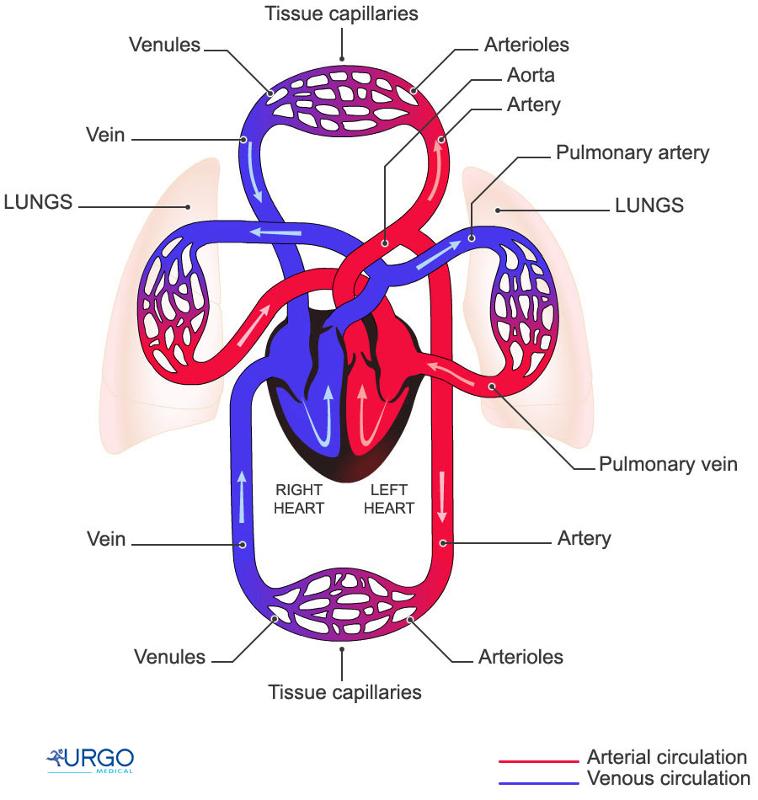This post is adapted for the Health & Medical Case Studies created by the Master of Medical Biotechnology program of the University of Windsor. This work licensed under a Creative Commons Attribution-NonCommercial (CC BY-NC-ND) 4.0 International License.
Cardiology Case Studies
The cardiovascular system is the body’s circulatory system. It comprises the heart and blood vessels (arteries, veins, and capillaries). This system maintains the internal homeostasis, supplies oxygen and nutrients to every tissue of the body in return for carrying back carbon dioxide to the lungs.

Source:http://humananatomybody.info/neck-arteries-model-labeled/
Cardiovascular diseases
- Hypertension
- Angina Pectoris
- Myocardial Infarction
- Heart Failure
- Arrhythmias
- Valve disease
- Congenital heart diseases etc.
Common signs snd symptoms
- Chest pain
- Chest compression and discomfort
- Fainting
- Dizziness
- Sweating
- Fatigue
- Shortness of breath
- Edema
- Irregular heartbeat etc.
Cardiovascular Investigations
- Electrocardiogram or ECG/EKG
- Echocardiogram
- Holter monitoring
- Exercise tolerance test or ETT
- Cardiac catheterization
- Cardiac MRI
- Cardiac CT scan.
Creative Commons License
Angina, also known as angina pectoris, is chest pain or pressure, a symptom of coronary heart disease, usually due to insufficient blood flow to the heart muscle (myocardium).
A myocardial infarction (MI), commonly known as a heart attack, occurs when blood flow decreases or stops to the coronary artery of the heart, causing damage to the heart muscle.
Arrhythmias, also known as cardiac arrhythmias, heart arrhythmias, or dysrhythmias, are irregularities in the heartbeat, including when it is too fast or too slow.
Oedema is a collection of fluid in the spaces between cells of the body. Fluid leaks out of damaged cells. The fluid cannot be simply drained with a needle and may not improve if you take 'water pills' (diuretics).
Electrocardiography is the process of producing an electrocardiogram (ECG or EKG), a recording of the heart's electrical activity.
An echocardiogram (echo) is a graphic outline of the heart's movement done by ultrasound.
Using Holter monitor (often simply Holter), a type of a portable device for cardiac monitoring of the electrical activity of the cardiovascular system for at least 24 hours.
A cardiac stress test (also referred to as a cardiac diagnostic test, cardiopulmonary exercise test, or abbreviated CPX test) is a cardiological test that measures the heart's ability to respond to external stress in a controlled clinical environment. The stress response is induced by exercise or by intravenous pharmacological stimulation.
Cardiac catheterization (heart cath) is the insertion of a catheter into a chamber or vessel of the heart.


